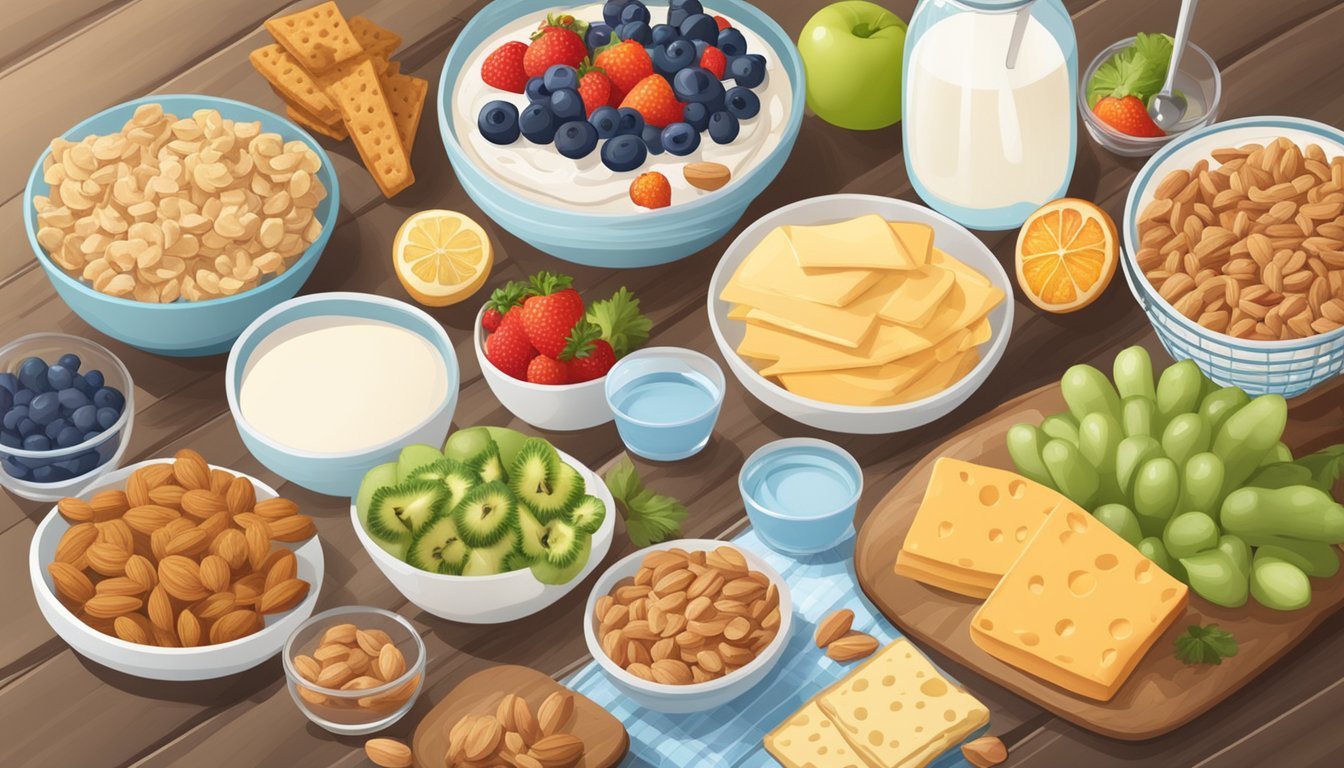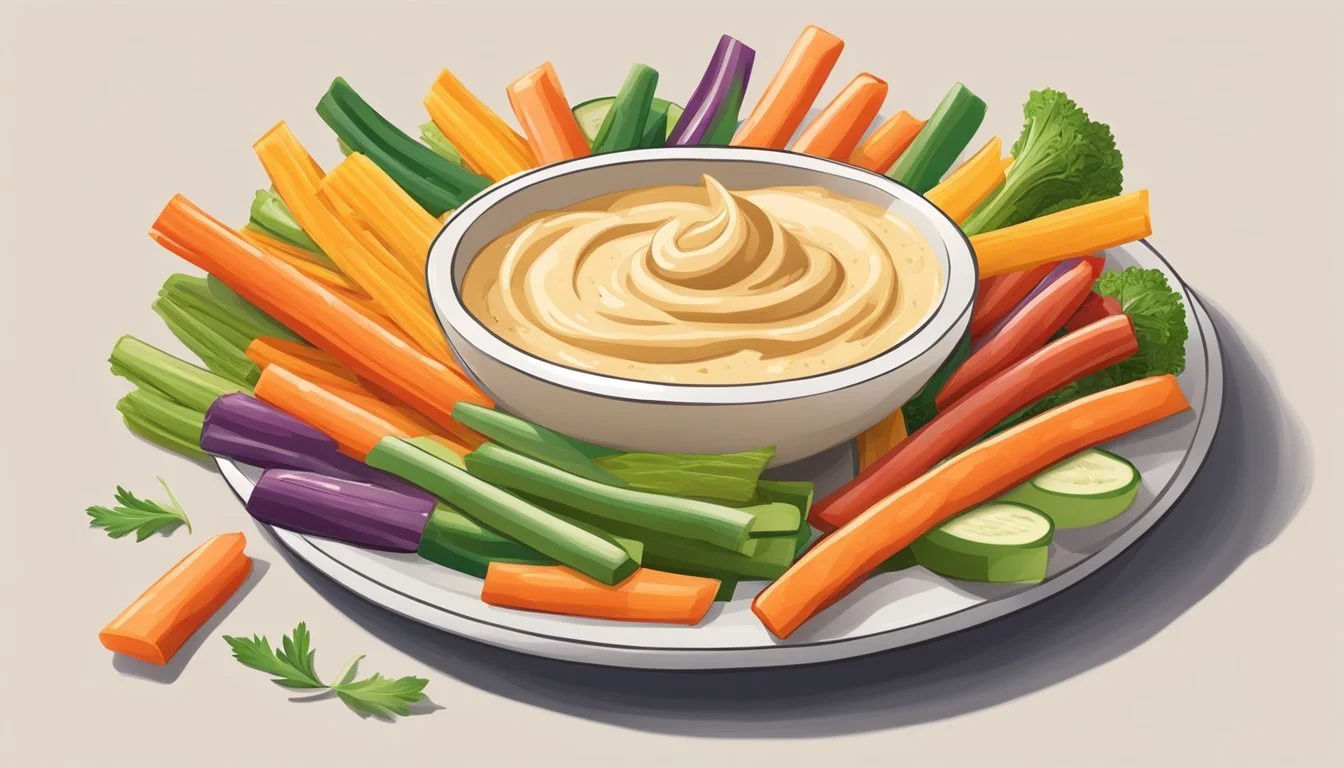6 Healthy Snack Ideas for Diabetic Athletes to Boost Performance
Maintaining a healthy diet is crucial for diabetic athletes, as it directly impacts their overall performance and blood sugar management. Selecting the right snacks can help maintain energy levels and prevent glucose spikes, ensuring that athletes with diabetes can continue to train and compete effectively.
Healthy snack choices are essential for balancing nutrients and stabilizing blood sugar levels. With a variety of options available, athletes need to focus on those that provide a balanced mix of protein, healthy fats, and complex carbohydrates. This article will explore six snack ideas that serve this purpose while catering to the unique dietary needs of diabetic athletes.
1) Greek Yogurt with Berries
Greek yogurt with berries serves as an excellent snack for diabetic athletes. It's rich in protein, which helps in muscle recovery and growth. The yogurt's probiotics also support gut health, essential for maintaining overall wellness.
Berries like strawberries, blueberries, and raspberries are packed with antioxidants. These fruits help reduce inflammation and provide essential vitamins and minerals. Their natural sweetness offers a delicious flavor without the need for added sugars.
This snack is easy to prepare. Simply mix a serving of unsweetened Greek yogurt with a handful of fresh or frozen berries. Adding a sprinkle of chia seeds can boost fiber content, aiding in digestion and stabilizing blood sugar levels.
For convenience, athletes can pre-portion this snack in containers. This makes it a great option for those on-the-go, ensuring they maintain their energy and nutrient intake throughout the day.
2) Almond Butter on Apple Slices
Almond butter on apple slices offers a nutritious snack for diabetic athletes. The natural sweetness of the apple provides essential vitamins and fiber. This can help with digestion and maintaining steady blood sugar levels.
Almond butter adds healthy fats and protein. This combination supports muscle recovery and provides sustained energy. It’s also low in carbs, which is beneficial for managing blood glucose.
This snack is convenient and portable. It requires minimal preparation, making it ideal for on-the-go athletes. Slice a fresh apple and spread with almond butter for a balanced, satisfying snack.
Choose unsweetened almond butter to avoid added sugars. This ensures the snack remains healthy and diabetes-friendly. Whether after a workout or as a mid-day refuel, almond butter on apple slices is a smart choice.
3) Veggie Sticks with Hummus
Veggie sticks paired with hummus make an excellent snack option for diabetic athletes. This combination offers a balance of carbohydrates, proteins, and healthy fats. The fiber content in vegetables helps regulate blood sugar levels, while hummus provides essential proteins and fats.
Carrots, celery, bell peppers, and cucumbers are popular choices for veggie sticks. These vegetables are low in calories and have a low glycemic index, making them suitable for those managing diabetes.
Hummus, made from chickpeas, is rich in protein and fiber, which can help maintain energy levels during athletic activities. The healthy fats in hummus also contribute to prolonged satiety and balanced blood sugar.
Pairing these veggie sticks with hummus can offer a variety of flavors and textures, making it a satisfying snack. For added flavor, consider using homemade nut butters to complement the hummus.
Portion control is essential. A serving size of half a cup of hummus with a handful of veggie sticks can provide the right balance of nutrients without spiking blood sugar levels. This simple yet tasty snack supports both energy needs and blood sugar management.
4) Chia Seed Pudding
Chia seed pudding is a nutritious and convenient snack for diabetic athletes. These tiny seeds are packed with fiber, omega-3 fatty acids, and protein, making them an excellent choice for sustained energy.
Preparing chia seed pudding is simple. Combine chia seeds with your choice of liquid, such as almond milk or coconut milk. Allow the mixture to sit for 10-15 minutes, stirring occasionally, until it thickens to a pudding-like consistency.
Adding toppings such as fresh berries, almond butter, or a sprinkle of cinnamon can enhance both flavor and nutritional value. The fiber content in chia seeds helps regulate blood sugar levels, which is particularly beneficial for diabetics.
A serving of chia seed pudding can be tailored to individual dietary needs, making it versatile for various nutritional requirements. Including it in a diabetic athlete's diet can support overall performance and health.
5) Cottage Cheese with Pineapple
Cottage cheese with pineapple is a delicious and nutritious snack that suits diabetic athletes perfectly. Cottage cheese is low in carbohydrates and high in protein, making it ideal for managing blood sugar levels.
Combining cottage cheese with pineapple adds a refreshing sweetness. Pineapple has natural sugars, so portion control is important for those with diabetes. Despite this, pineapple offers anti-inflammatory benefits which can be advantageous for athletes in recovery.
The high protein content in cottage cheese supports muscle repair and growth after physical activities. One cup of cottage cheese provides approximately 28 grams of protein, aiding in post-game recovery and maintaining energy levels.
This snack also helps replenish sodium lost through sweat during exercise. The pairing of cottage cheese and pineapple creates a balanced snack, balancing dietary needs for those with diabetes.
6) Hard-Boiled Eggs
Hard-boiled eggs are an excellent snack choice for diabetic athletes. They are packed with protein, providing 6.3 grams per large egg, which helps maintain muscle and supports recovery after workouts.
In addition to protein, hard-boiled eggs contain essential vitamins and minerals. They are rich in B vitamins, which support energy metabolism, and selenium, an antioxidant that fights oxidative stress.
Their convenience makes hard-boiled eggs particularly appealing. They can be prepared in advance, are easy to transport, and offer a quick, nutritious option for athletes on the go.
Hard-boiled eggs also help manage blood sugar levels. Their high protein and healthy fat content slow down the absorption of glucose, preventing sharp spikes in blood sugar.
This quality helps in maintaining steady energy levels, which is crucial for diabetic athletes.
Importance of Nutrient Timing
For diabetic athletes, the timing of their snacks is crucial in ensuring that their blood sugar levels remain stable and their energy levels are optimized. Proper nutrient timing can enhance performance and aid in recovery.
Pre-Workout Snacks
Pre-workout snacks help provide the energy needed for exercise without causing spikes in blood sugar. Eating a balanced snack with a mix of carbohydrates, protein, and fats about 30-60 minutes before exercise can be beneficial.
For example, a small apple paired with a handful of almonds offers moderate carbohydrates and healthy fats. Alternatively, a slice of whole-grain toast with peanut butter provides energy and sustained release due to the fiber content.
Selecting low glycemic index (GI) foods is important for diabetic athletes to avoid rapid increases in blood glucose. Options like Greek yogurt with berries or hummus with carrot sticks are ideal choices that fit these criteria.
Post-Workout Nutrition
Post-workout nutrition is key to recovery, muscle repair, and replenishing glycogen stores. Within 30 minutes after exercise, consuming a combination of protein and carbohydrates can aid in effective recovery.
One effective choice is a smoothie made with a scoop of protein powder, a banana, and a small handful of spinach. This provides quick-digesting carbs and protein to assist muscle repair.
Another option is a grilled chicken wrap with whole grain tortilla and mixed veggies. This balanced meal not only helps in muscle recovery but also maintains stable blood glucose levels.
Focusing on nutrient timing enables diabetic athletes to manage their blood sugar while optimizing their performance and recovery.
Balancing Carbs and Protein for Diabetic Athletes
Properly balancing carbohydrates and protein is vital for diabetic athletes to maintain energy levels and muscle health. Monitoring the glycemic index of carbohydrates and ensuring adequate, high-quality protein intake can significantly impact performance and overall health.
Glycemic Index Considerations
Carbohydrates affect blood sugar levels differently, which can be measured by the glycemic index (GI). Low-GI foods, such as quinoa, oats, and most fruits, cause slower and more stable rises in blood glucose.
For athletes, choosing low-GI carbs helps maintain consistent energy levels and avoids spikes or crashes in blood sugar. Snacks like whole grain toast with a thin layer of avocado or apple slices with peanut butter create balanced energy sources that provide sustained glucose release.
To optimize blood sugar control, pairing carbohydrates with protein can further slow glucose absorption. This is particularly important for pre- and post-exercise snacks, where a blend of low-GI carbs and protein can support both immediate and sustained energy needs.
Optimizing Protein Intake
Protein is crucial for muscle repair and growth, especially for athletes. Diabetic athletes need to prioritize high-quality protein sources that align with their dietary needs. Options include lean meats, fish, eggs, dairy, and plant-based proteins like edamame, chickpeas, and tofu.
Incorporating protein into each meal and snack supports muscle maintenance and recovery. A balanced snack example is a boiled egg with a handful of nuts, providing a mix of protein and healthy fats with minimal carbohydrate impact.
For an effective diet plan, diabetic athletes should aim for 0.8 to 1 gram of protein per kilogram of body weight. This ensures adequate support for muscle recovery and overall health, crucial for sustaining athletic performance.
Hydration Strategies for Diabetic Athletes
Proper hydration is crucial for diabetic athletes. It helps maintain blood glucose levels, enhances performance, and prevents dehydration.
Athletes should monitor their fluid intake before, during, and after exercise. Drinking water regularly is essential. For longer sessions, electrolyte beverages can help replace lost minerals.
Coconut water and fortified sports drinks are useful options. They provide essential electrolytes without excessive sugars.
Checking blood glucose levels before exercise ensures adjustments in fluid intake are accurate. This monitoring helps prevent both hyperglycemia and hypoglycemia.
Including hydrating snacks such as watermelon slices or cucumber sticks can support hydration while providing vitamins and minerals.
To maintain balanced hydration, athletes with diabetes should avoid sugary drinks, which can spike blood glucose levels. Instead, focus on natural and low-sugar options.







